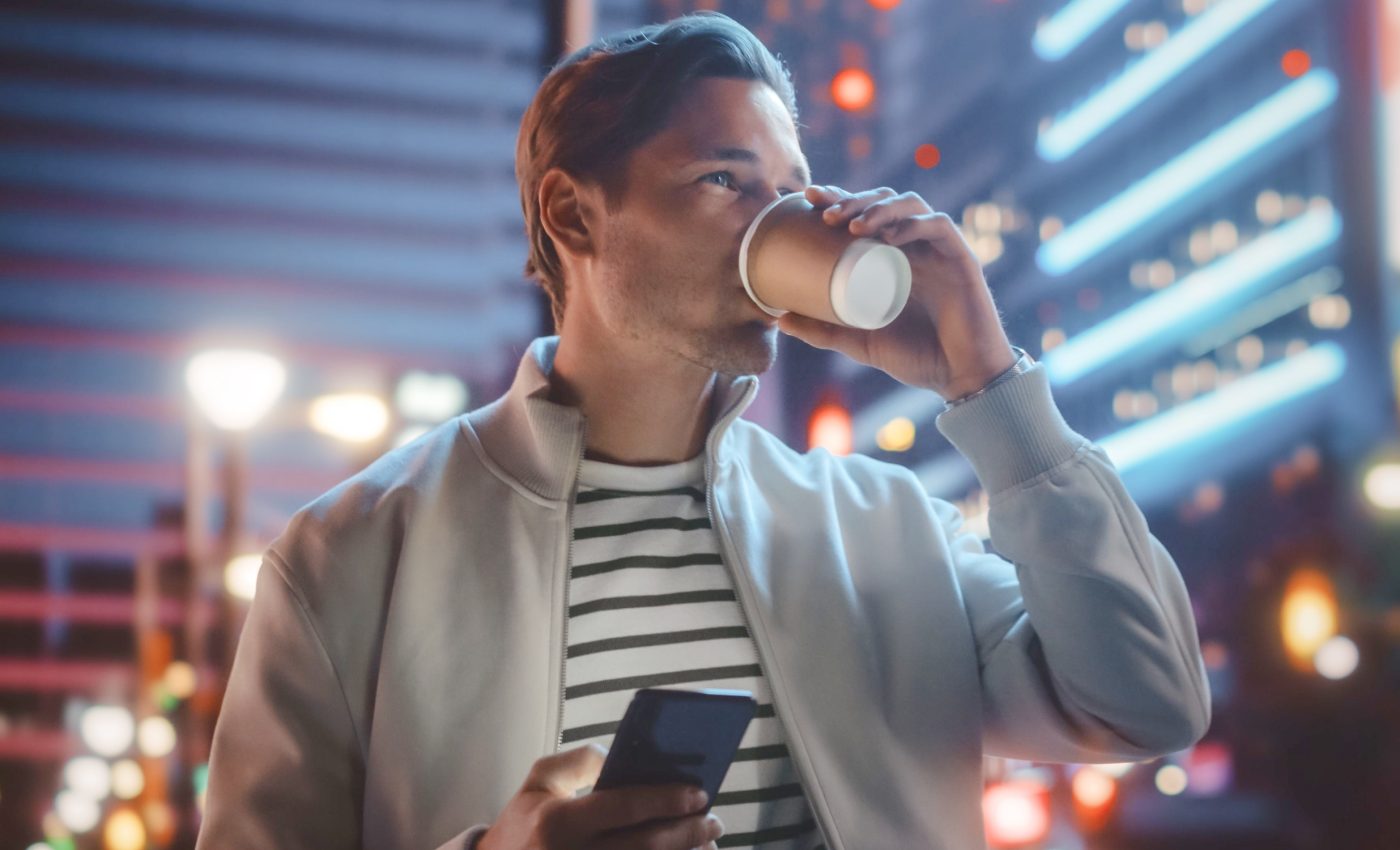
Evening caffeine consumption may lead to more impulsive behavior
People who work late or binge watch shows often lean on an extra cup of coffee after dark. The new evidence suggests that habit may backfire by nudging behavior toward rash choices.
About 85 percent of American adults sip at least one caffeinated drink each day.
The latest experiments from The University of Texas at El Paso (UTEP), led by Paul Sabandal, Ph.D., Kyung An Han, Ph.D., and colleagues, ask what happens when that drink lands after sunset.
Caffeine at night causes impulsive acts
“Caffeine is the most widely consumed psychoactive substance in the world, with about 85 percent of adults in the U.S. using it regularly,” said Sabandal, research assistant professor in UTEP’s Department of Biological Sciences.
The researchers slipped caffeine into the feed of fruit flies and then blasted the insects with a strong airflow to see whether they would hold still or bolt.
Under normal conditions the insects freeze when wind hits them, a survival trick. After nighttime caffeine, many kept flying, a textbook display of impulsivity that mirrors risky behavior in people who act before thinking.
The team also ran daytime trials with the same caffeine dose. Those flies behaved themselves, underscoring that timing, not dose alone, determines the outcome.
Flies help show caffeine effects
The species Drosophila melanogaster shares key genes and signaling pathways with humans, including those governing decision making. That genetic overlap lets scientists trace cause and effect far faster than in human volunteers.
Flies also cycle through 24 hour activity patterns much like ours, making them a practical model for shift work questions.
Their tiny brains respond to psychostimulants in ways that map onto mammalian circuits, so discoveries often scale up.
Night and day caffeine work differently
Evening caffeine can shove the human circadian clock back by roughly forty minutes, delaying the nightly melatonin surge that signals bedtime.
The new fly data show a behavioral echo of that clock shift, tying late night stimulation to weaker inhibitory control.
Day drinkers in the study absorbed the same amount of caffeine but stayed cautious, suggesting that the drug’s impact is gated by the biological night rather than blood concentration.
Chronobiologists see a parallel in people: caffeine taken near bedtime undermines self control and lengthens reaction times the next day.
The finding matters for nurses, truckers, and other night shift workers who count on coffee to stay sharp. A jolt that keeps eyes open might also loosen the brake on risky moves.
How caffeine triggers impulsive acts
Biochemical tests pointed at dopamine, the neural currency of motivation and reward. When the scientists damped dopamine production or silenced specific dopamine releasing neurons, caffeine no longer spurred reckless flight.
Flies lacking the D1 type dopamine receptor in mushroom body neurons, a decision hub, were similarly protected, while boosting the same receptor amplified the impulse. Earlier work shows that altering dopamine shifts arousal thresholds in flies.
Together, the results sketch a tidy chain: nighttime caffeine heightens dopamine signaling in select brain cells, those cells dial down inhibition, and the animal acts before it weighs the cost.
Female flies hit the throttle harder
“Flies don’t have human hormones like estrogen, suggesting that other genetic or physiological factors are driving the heightened sensitivity in females,” said Han, professor of biological sciences.
One surprise jumped out, females were far more sensitive than males, even though their internal caffeine levels matched.
Human studies echo the pattern: women report more negative effects such as anxiety after caffeinated drinks, while men more often describe positives like vigor. The sex gap hints at biology that could inform dosing guidelines.
Late caffeine can make people impulsive
The work does not prove that a midnight latte will make a human run a red light, yet it flags a plausible hazard.
Laboratory studies link high caffeine to bolder risk taking in adolescents and college students, especially under sleep pressure.
Shift work research already shows that sleeplessness saps self control, adding caffeine’s dopamine kick may further erode judgment.
Employers relying on coffee rather than adjusted schedules or lighting may be courting error.
For individuals, a simple tweak could help: keep the last cup at least six hours before planned sleep, and rely on bright light, movement, or short naps to push through late duties.
Testing safer caffeine use
The UTEP team plans to map the molecular switches that make nighttime neurons so caffeine sensitive, work that could inspire safer stimulants.
They also want to test whether graded doses, rather than the fly equivalent of a double espresso, carry the same risk.
Meanwhile, the findings offer an easy takeaway: if you must stay alert, try morning brew and evening water. Your inhibitory control may thank you.
The study is published in iScience.
—–
Like what you read? Subscribe to our newsletter for engaging articles, exclusive content, and the latest updates.
Check us out on EarthSnap, a free app brought to you by Eric Ralls and Earth.com.
—–













